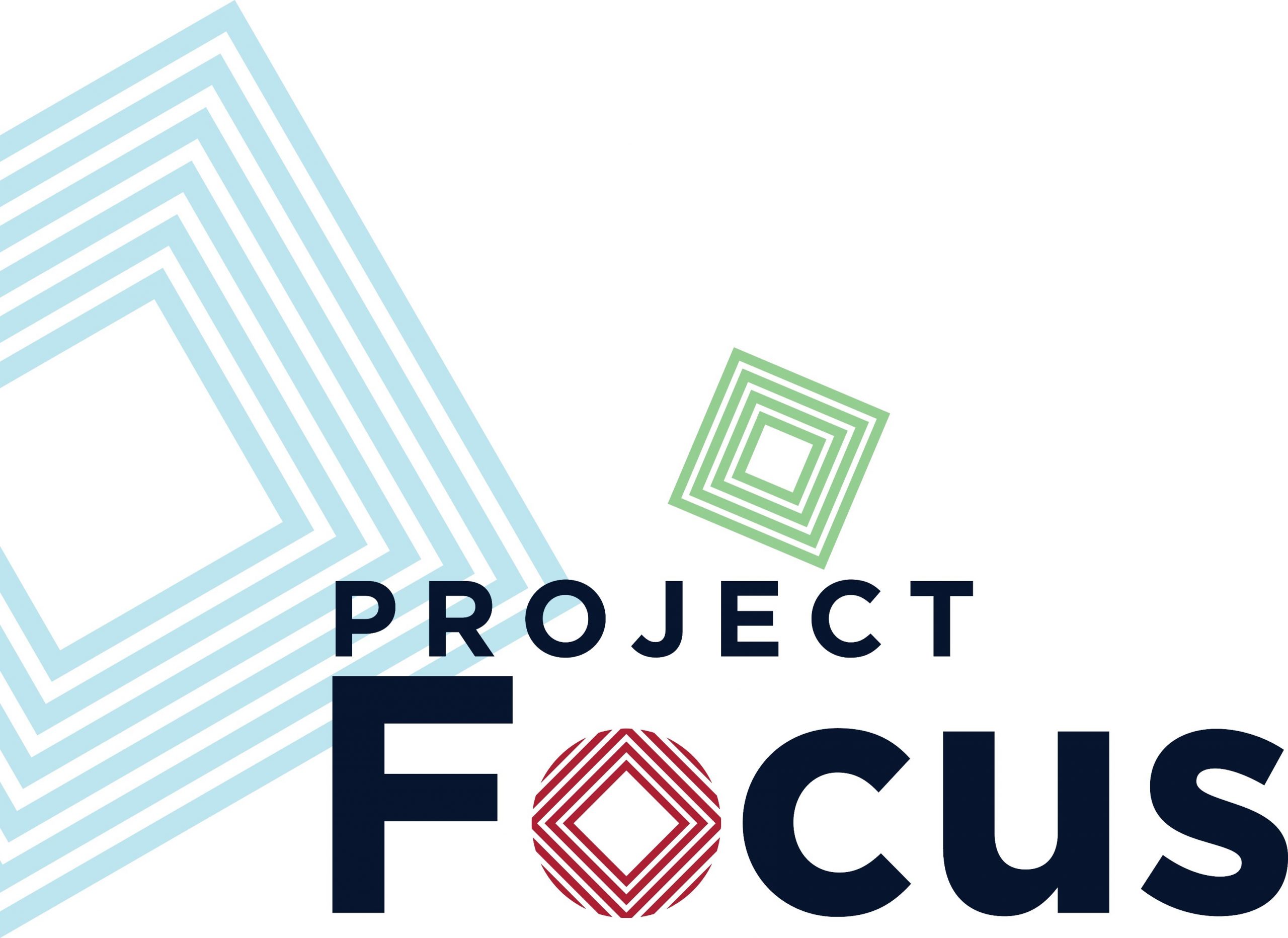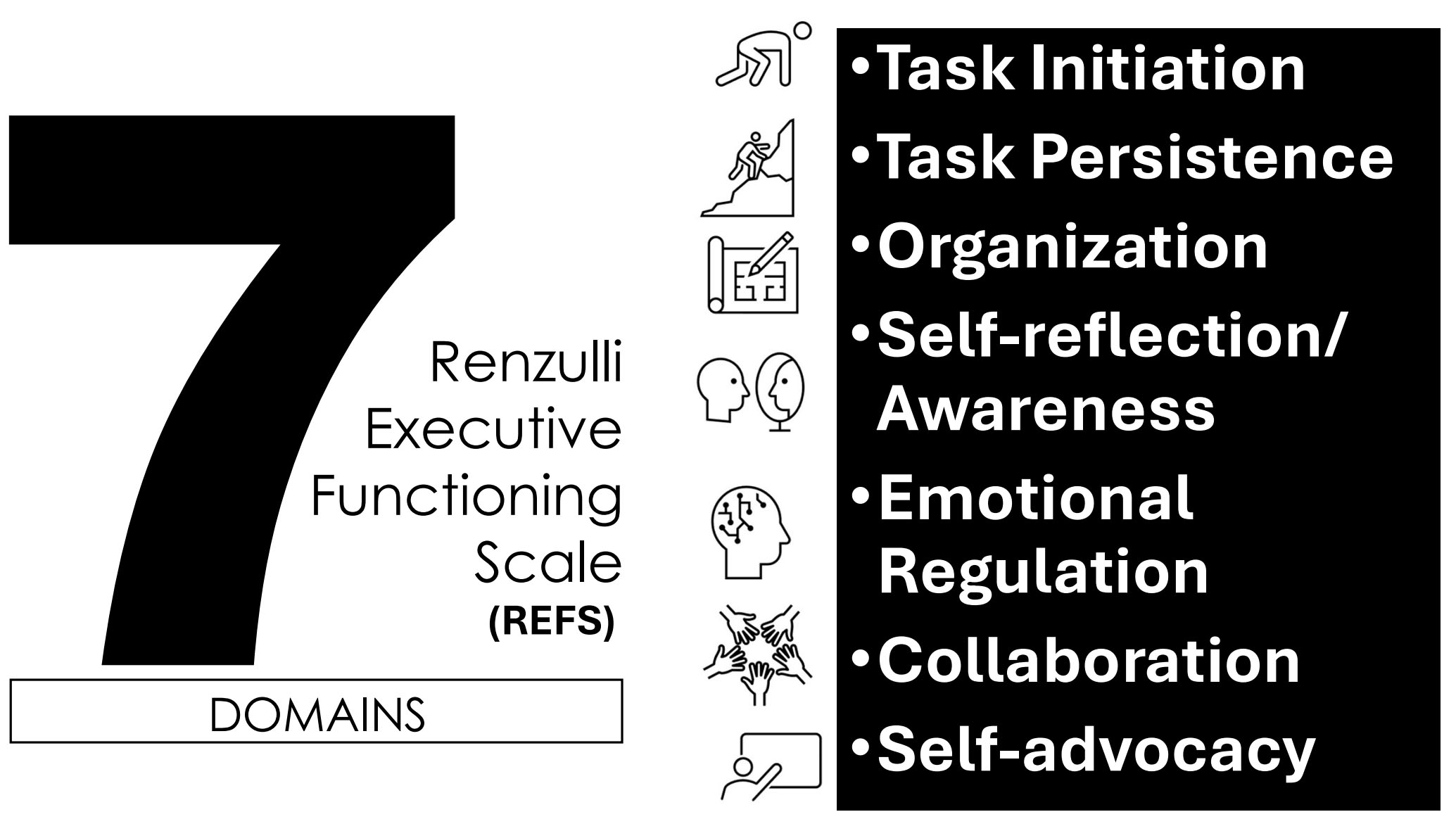New Renzulli Executive Functioning Scale
The Renzulli Center for Creativity, Gifted Education, and Talent Development is creating a new scale to measure various aspects of executive functioning. The scale asks you about your ability to start tasks, ability to stay on task, organization, awareness of strengths and weaknesses, self-advocacy, ability to collaborate, and awareness of and ability to manage emotions.
Supporting Academic Acceleration in Schools

The National Center for Research on Gifted Education is seeking school districts interested in expanding their use of subject-specific and whole-grade acceleration as a way to meet the needs of advanced learners. We are seeking participants for research that can begin in academic year 2024-25. Academic acceleration is the intervention for advanced learners that has shown the greatest effect on learning and achievement. This project seeks to (a) provide professional learning around what acceleration actually is and how it can be used with compensation for participating grade 2-5 teachers, (b) develop a universal screening process to determine which students should be considered for acceleration, and (c) provide resources and professional learning to schools to help them implement subject-specific and whole-grade acceleration decisions for students who meet the criteria.
What you would get from us:
- Free access to online professional learning modules for second- through fifth-grade teachers and others who would be involved in acceleration decisions. Each educator who completes the set of four 45-minute modules will receive a $100 Amazon gift certificate.
- Technical support implementing a universal screening system with your existing data to determine who should be considered for acceleration.
- Access to the Integrated Acceleration System (Acceleration Institute, University of Iowa) for making whole-grade acceleration decisions. Educators who participate in a one-hour Integrated Acceleration System meeting will be compensated for their time with a $100 Amazon gift certificate.
- Funding necessary to purchase any additional assessment tools.
- Ongoing facilitation of accelerated placement decision making.
- Compliance with all district policies. We understand that working with your district may require a data-sharing agreement and/or approval by a district or school research institutional (ethical) review board. We will comply with all district policies.
What we would want from you:
- A commitment to have second- through fifth-grade teachers and administrators work through about 3 hours of online professional learning related to acceleration. We will compensate them with a $100 Amazon gift certificate.
- De-identified academic achievement and ability data for all district students in second and third grades (if possible, disaggregated by race/ethnicity, gender, and ideally free and reduced-price lunch (FRPL), language, and special education status). We will compensate the district for the cost of pulling the data. We will use the data to assist you in determining students to consider for acceleration.
- Willingness to work through the Integrated Acceleration System process for some students (approximately 1 hour with our support); any decision to accelerate students is determined by the district.
- A willingness to share student ability and achievement test data for participating students as part of the IAS process. We will pay for those tests if they are not already given.
- A commitment to have second- through fifth-grade teachers and other school personnel provide feedback about the acceleration process.
- Data on how often acceleration is used in subsequent years after the project.
Visit https://ncrge.uconn.edu/acceleration/ for more information
Study of Subject Acceleration Practices – Seeking Interview Participants
 The National Center for Research on Gifted Education is conducting a study to document and disseminate information on how school districts implement subject acceleration (i.e., advancing students in one or more subject areas without whole-grade accelerating the student; may exist in combination with whole-grade acceleration procedures). We are seeking responses from school districts who have systematic procedures in place for subject acceleration. Our study goal is to describe common procedures in place in districts across the country as guidance for districts considering how to approach this practice.
The National Center for Research on Gifted Education is conducting a study to document and disseminate information on how school districts implement subject acceleration (i.e., advancing students in one or more subject areas without whole-grade accelerating the student; may exist in combination with whole-grade acceleration procedures). We are seeking responses from school districts who have systematic procedures in place for subject acceleration. Our study goal is to describe common procedures in place in districts across the country as guidance for districts considering how to approach this practice.
Participation in the study will involve an online interview of a knowledgeable member of the district staff (e.g., gifted program coordinator, director of advanced academics) with the study team. We expect the interview to last approximately 1 hour. Participants will receive questions in advance and will also have the option of submitting responses in writing.
To learn more about the study or to indicate interest in participation, please review the consent form here: https://uconn.co1.qualtrics.com/jfe/form/SV_dczM9ULuiQUD6ke or reach out to Catherine Little at catherine.little@uconn.edu or 860-486-2754.
Project Focus Research Participation

Project Focus, a research project at the University of Connecticut, is seeking elementary schools for participation. We are seeking classroom teachers at grades 3-5 to participate in professional learning with follow-up data collection focused on classroom discussions. The overall purpose of the project is to examine the effects of professional learning activities on teachers’ self-efficacy around questioning and discourse, recognition of evidence of advanced potential, and instructional quality. Additionally, we seek to identify the linguistic features that characterize high-quality classroom questioning and discussion and use those to inform ongoing professional learning activities. Teachers will be compensated for participation.
To learn more, please contact the project director, Dr. Catherine Little, at catherine.little@uconn.edu or project.focus@uconn.edu. This project is sponsored by the Jacob K. Javits Gifted and Talented Students Education Program of the U.S. Department of Education.

Free Workshop on Spotting Diverse Learners
Beginning fall 2025, Project EAGLE’s 15 certified trainers will deliver complimentary, one-day workshops across Arizona, Colorado, and Texas. These interactive sessions provide educators with practical tools and strategies to use mathematics to spot talent in all students, particularly those from underserved populations.
Workshop participants will learn to implement an alternative method to recognize gifted behaviors in diverse learners and create inclusive learning environments that nurture mathematical potential. Each session combines theory with hands-on practice, ensuring educators leave with immediately applicable strategies.
Project EAGLE (Eliciting Advanced Gifted Learning Evidence) addresses the critical need for assessment systems that better identify talent in diverse student populations. We tackle the issue of underidentification, which leads to underservicing, by implementing a dynamic approach to recognizing gifted behaviors. This approach empowers grade 3 and 4 teachers to use our Points of Promise observation checklist, designed to identify characteristics of mathematical potential and talent, as they observe and engage students in five problem-based math activities specifically crafted to elicit gifted behaviors.
We are currently seeking educators from Arizona, Colorado, and Texas to become Project EAGLE Trainers as part of a federally funded Javits research grant. Fifteen trainers–five from each state–will participate in a five-day orientation on the Project EAGLE dynamic identification system, to be held from July 13-17, 2025, at the University of Connecticut’s Confratute. Following this training, the trainers will return to their respective states to conduct five workshops during the 2025-26 academic year, sharing the Project EAGLE approach to identifying underserved gifted students.
Our workshops transform how educators recognize giftedness, especially in students whose brilliance may be masked by language differences or traditional assessment limitations.
Who Should Attend
| School Administrators
Principals, assistant principals, and district leaders who want to improve identification processes and ensure equitable access to gifted services across their schools. |
3rd, 4th, and 5th Grade Teachers
Elementary educators working directly with students during crucial developmental years when talent often becomes evident but may go unrecognized. |
Gifted Specialists
Professionals responsible for identifying and supporting gifted learners who seek innovative approaches to expand their identification toolkit, especially for underserved populations. |
Benefits for School Districts
Increased Equity – Identify gifted potential in traditionally underrepresented student populations, creating more diverse and inclusive gifted programs.
Enhanced Teacher Capacity – Equip educators with specialized tools to recognize talent across all student populations, improving overall instruction.
Improved Student Outcomes – Nurture previously unrecognized talent, leading to better engagement, achievement, and long-term educational success for more students.
Request a Workshop
If you’re an educator in Arizona, Colorado, or Texas interested in hosting or attending a complimentary one-day Project EAGLE workshop, complete the simple request form at: https://s.uconn.edu/gtid
Our team will match you with an available certified trainer in your area. All workshops are provided at absolutely no cost to participating schools or districts.
What to Expect
- One full day of professional learning (6 hours)
- Comprehensive training materials
- Ready-to-use identification strategies
- Follow-up support resources
For more information, email projecteagle@uconn.edu
